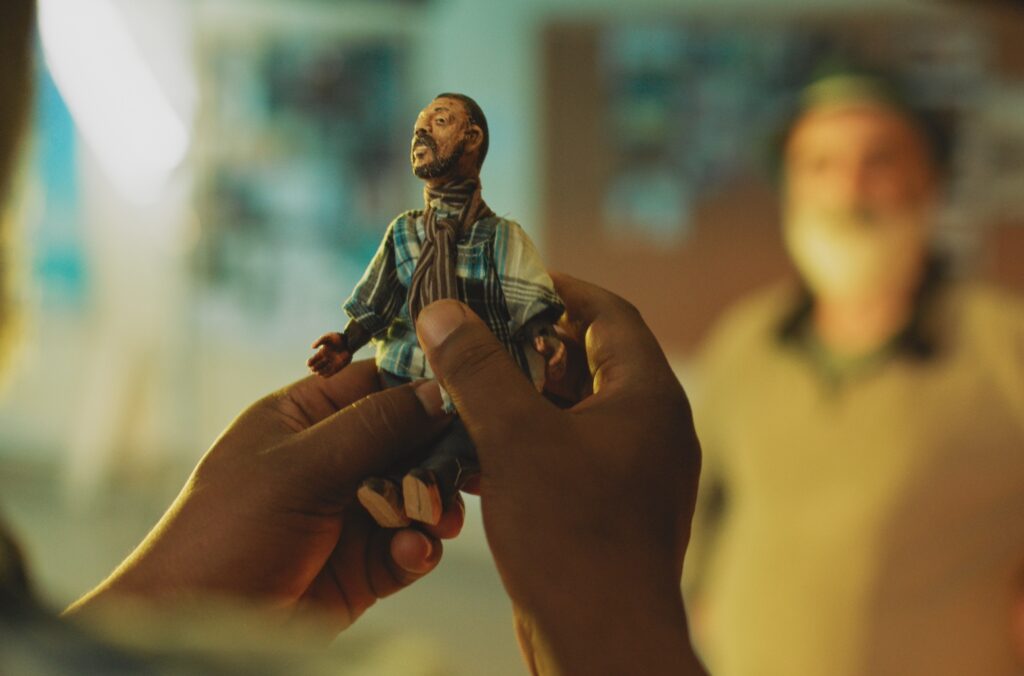At First Glance Seemingly Just an Elaborate Contrivance, ‘The Mother of All Lies’ Is a Tour de Force
Asmae El Moudir’s movie is among the most resourceful films to come down the pike in some time; the most powerful, as well. It is a serious venture of daunting personal integrity and considerable artistic merit.

Asmae El Moudir’s “The Mother of All Lies” is a motion picture marked by elaborate contrivance. It’s a documentary about the intersection of family and fate, about those who we hold close and those who would pull us asunder. Having little in the way of hard historical evidence, the filmmaker reframes past events through the use of homemade dolls and miniature sets, placing hand-crafted reimaginings alongside straight-on interviews with family and friends.
Sounds affected, don’t you think? Think again: Ms. El Moudir’s movie is among the most resourceful films to come down the pike in some time; the most powerful, as well. It is a serious venture of daunting personal integrity and considerable artistic merit.
Ms. El Moudir is a 30-something Moroccan with two master’s degrees, one in documentary cinema and the other in film production. She pursued additional studies at La Fémis, a branch of Paris Sciences et Lettres University, and has one feature under her belt, “The Postcard” (2020). That, too, was a film predicated on family — in specific, Ms. El Moudir’s mother, Ouarda. Mom figures into “The Mother of All Lies” as well, but she is overshadowed by Ms. El Moudir’s grandmother, Zahra.
The grand matriarch of the family doesn’t only overshadow her daughter-in-law; she does so with everyone. Her humble attire and stooped posture are deceiving: Grandma is a domineering old bird who is as wily and cruel as she is ill-tempered and voluble. At the onset of “The Mother of All Lies,” Ms. El Moudir helps Zahra with a hearing aid, repeatedly asking if the device is working. We intuit in quick order that Zahra hears what she wants to hear; the rest of us be damned.

Zahra is adamant that her granddaughter’s occupation is a journalist, not a filmmaker. The latter is a medium inherently dependent on images, and Zahra has, out of religious principle, forbidden photos in the family home. (Some strains of Islam forbid the depiction of living, sentient beings.) The lone picture Zahra deigns to put on the wall is a grainy, black-and-white photo of King Hassan II.
When Ms. El Moudir began filming, Zahra refused to participate. Why she ultimately appears on camera could, I suppose, be chalked up to the bonds of family. Still, one suspects Zahra’s prime motivation was maintaining some sense of control.
Other than the official portrait of the king, there are three and only three photos that figure significantly in “The Mother of All Lies.” The first is a dog-eared picture of Ms. El Moudir at an indeterminate age — but, then, everything in this picture is indeterminate, including if the girl seen in it is, in fact, the director. No one is convinced. Mom doth protest too much that the picture most definitely is of her daughter.
Then there’s a photo Ms. Moudir had taken on the sly as a 12-year-old. Sneaking out of the house on the evening of a holiday that celebrates the prophet Muhammad’s initial contact with the Quran, Laylat-al-Qadr, our heroine paid to have her picture taken by a local photographer. Wealthier citizens opt for opulent costumery and settings. Ms. El Moudir couldn’t afford the indulgence: She poses in front of a generic tropical backdrop.
The rarest photo is of the 1981 Bread Riots or, rather, the aftermath. What we see is an urban boulevard dotted with twisted bicycles and scattered corpses. Bystanders wander at the edges of the frame; dust rises. Citizens protesting the price of flour had been beaten and killed by governmental forces. Among those killed was a childhood playmate of Ms. Moudir’s; among those victimized was the next-door neighbor, Abdallah EZ Zouid. Morocco does not have a national archive. This is the lone visual testament to the day.
At the midpoint of the film, Mr. Zouid recalls the events leading up to and resulting from the Bread Riots, using the clay figurines and scale-model locales made by Ms. El Moudir and her father Mohamed, a former mason. Here is where the filmmaker’s gambit of utilizing miniatures proves its efficacy, resulting in a scene of almost unbearable emotional depth. Mr. Zouid’s story is not easily forgotten, but the same is true for the entirety of this deeply humane and profoundly harrowing movie. “The Mother of All Lies” is a tour de force.

